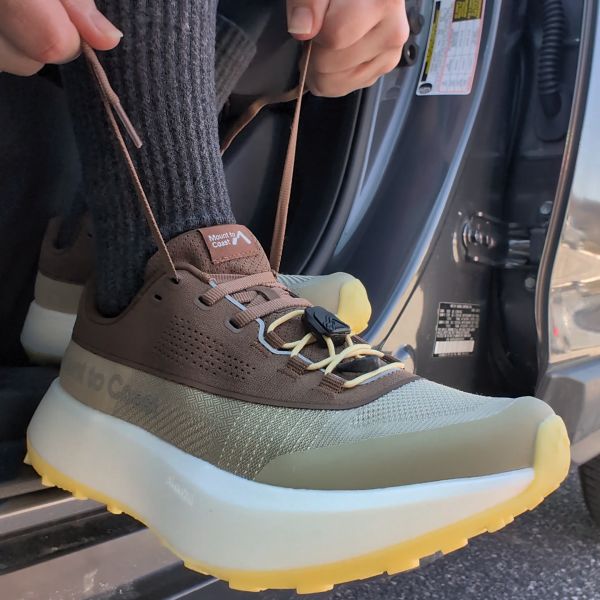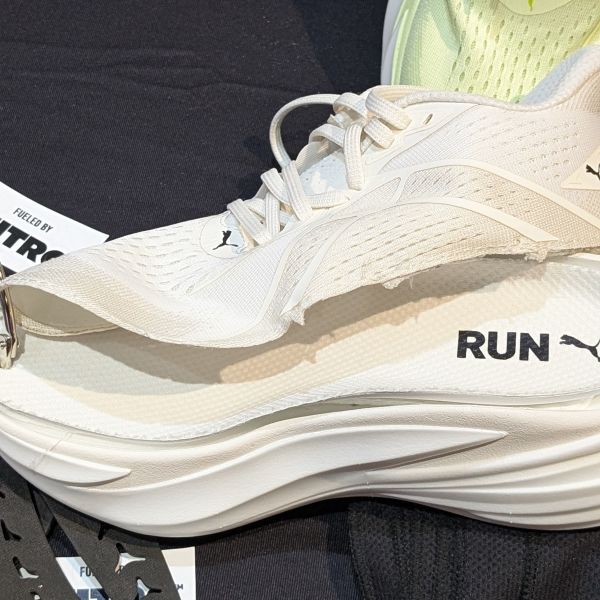Need help getting to the 26.2-mile finish line of a spring marathon? Ask a running coach.
There’s a lot to think about when you’re training to run 26.2 miles.
And if you’ve been running fewer miles during the winter months, some training days might feel like a chore. Yes?
OK, if this looks anything like your spring marathon training plan, a DNF could be in your future.
Or at least a lot of unnecessary suffering, cursing, and post-race regret.
Training for a spring marathon doesn’t have to be ugly, even if you’re emerging from some lower-mileage months.
We caught up with 5 running coaches to help you out.
In this article, they’ll share their best spring marathon training tips for:
Q: Why should you increase mileage carefully?
CHRIS: If you increase it too quickly or do not simultaneously prioritize your recovery between runs, the increase in mileage will likely backfire in the form of injury or stagnation.
Q: What is the optimal amount of mileage for a runner?
CHRIS: If your goal is to become the fastest runner you can be, then the optimal amount of mileage is the highest amount you can handle while still enjoying running and without getting hurt.
The key to increasing your weekly running mileage is to do it gradually and patiently.
CHRIS: Running more is the best thing you can do to become a better distance runner.
By running more mileage...
Q: Does the law of diminishing returns apply to marathon training?
CHRIS: There is a point for all athletes in which they hit their upper limit for mileage. Every individual can only handle so much mentally and physically, but until you get there, more mileage is very often the right answer.
Q: How should you increase your mileage from season to season?
CHRIS: A general rule of thumb is to not increase your peak mileage more than 10 miles per week from training season to season. If you successfully run 30 miles per week before your first marathon, in your next season you could train up to 40. If that goes well, consider going up to 50 in the next season.
Q: Any other advice for runners ramping up miles for a spring marathon?
CHRIS: Being patient with your spring marathon training and intentionally delaying the growth of your mileage over the years will give you a longer and healthier career in distance running. There is no prize awarded for rushing to high-mileage.
Q: How do you incorporate strength training to prepare for a marathon?
ERIN: Strength training while building for a marathon should be as efficient and simple as possible.
Q: What kind of movements work to help runners build strength?
ERIN: Keep every strength training session simple. After a 3-5:00 light cardio warm up, aim to hit the five basic movements:
Q: What's a sample strength training workout for runners look like?
ERIN: Do 8 to 10 repetitions of each exercise, then move on to the next exercise. Perform the circuit 2-3 times.
Running through the circuit 2-3x while doing 8-10 receptions of each exercise (and a minute on the carries). This circuit workout for runners shouldn't keep you in the gym longer than watching a Seinfeld episode.
Q: Will lifting weight make you big, bulky and slow?
ERIN: Don't be afraid to move heavy weights. We all know the weakling stereotype of the marathon runner. Put down your 5-pound pink dumbbell and stop contributing to the problem. Grab a barbell, throw some plates on it, and move real weight.
Q: What's the big payoff from lifting weights when you run a marathon?
ERIN: Stay consistent on the weight training, and your bombproof quads and glutes of steel will thank you at mile 25 during your spring marathon.
Q: Should you run every day to train for a marathon?
TUCKER: If you love running, or you're an all-in kind of person when it comes to training for a spring marathon, you might be tempted to run more miles. You know...
It's a recipe all right. But it's a recipe for burnout and running-related injuries.
Q: What do you recommend for rest days to train for a marathon?
TUCKER: Minimum 1 day completely off from training each week. Take more as needed.
Q: What should you eat before a run?
KAYLA: Before short training runs (less than 60 min), it’s recommended to eat a small snack of carbohydrates and some fats/protein.
Try a piece of toast with peanut butter or banana at least 10-15 minutes before. Simple carbs are best before a run.
For training runs more than 60 min (or long run days), you want to still eat carbohydrates and some fats/protein, but should eat more.
Give yourself at least 2 hours or more to digest.
Q: What should you eat during a run?
KAYLA: For any run over 60 minutes, you should be fueling during your run.
Why? During a long run our body will use up glucose from your glycogen stores in your muscles after an hour, so you want to replace them so you don’t run out of energy.
Fuel every 45-60 minutes with at least 30g of carbs. This could include gels or chews. My plant-based runners like to use dates to replace some of their gels during marathon training.
Q: What should you eat after running?
KAYLA: For post-run nutrition, you want to fuel with protein and carbohydrates within 2 hours. It is best to eat some protein within 45 min-1 hour if you can to help your muscles recover.
Q: How should you eat for a race?
KAYLA:
Q: How do you get your mind right and stay motivated to train for a marathon?
KYLE: My best advice for motivation and mindset for spring marathon training or anything else, is that you must have empathy with your future-self when it comes to making decisions. That's all motivation is.
Think about it like this...
If you go for that raining-cold spring run or if you bail on it, how will you feel in:
Chances are you'll be totally HAPPY with your decision to head out for that workout in the rain once you get going!
Are you running a spring marathon?
In just a few weeks, thousands of runners will hit the road to run the most popular 26.2-mile race in the world...The Boston Marathon.
Maybe you're running another spring marathon. Or if you're looking for a spring marathon, check out this useful resource.
Between now and stepping up to the starting line of a spring marathon, If you work on:
You'll be ready to go the distance.
Good luck!
🏃♂️🏃♀️ What's your favorite spring marathon? Tell us about it in the comments.👇

Login to your account to leave a comment.





We Want to Give it to You!
